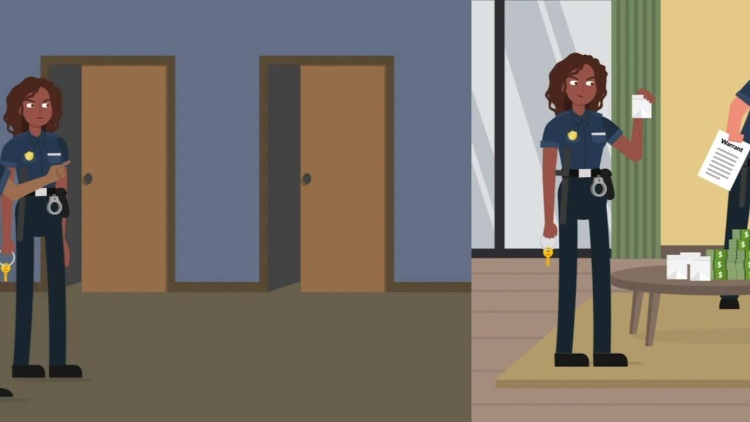Maryland v. Garrison
United States Supreme Court
480 U.S. 79 (1987)
- Written by DeAnna Swearingen, LLM
Facts
Police in Baltimore asked for a warrant authorizing the search of Lawrence McWebb’s apartment. After speaking with an informant, visually surveying the exterior of the building, and questioning the utility company, officers reasonably determined that there was only one apartment on the third floor of the building. There were actually two apartments on the third floor, one belonging to McWebb and one to Garrison (defendant). Probable cause was shown, and the warrant authorized the search of “the premises known as 2036 Park Avenue third floor apartment.” Officers used McWebb’s key to open the door on the third floor and came to an entryway with open doors on either side. Police began searching Garrison’s apartment and found drugs and drug paraphernalia before realizing there were two apartments. The search was then stopped. Based on the evidence discovered before the search was stopped, Garrison was convicted under the Maryland Controlled Substances Act after his motion to suppress the evidence was denied. The three lower courts in Maryland determined that the warrant was valid at the time it was issued. The state supreme court reversed, holding that the motion should have been granted. The United States Supreme Court granted certiorari.
Rule of Law
Issue
Holding and Reasoning (Stevens, J.)
Dissent (Blackmun, J.)
What to do next…
Here's why 907,000 law students have relied on our case briefs:
- Written by law professors and practitioners, not other law students. 47,100 briefs, keyed to 996 casebooks. Top-notch customer support.
- The right amount of information, includes the facts, issues, rule of law, holding and reasoning, and any concurrences and dissents.
- Access in your classes, works on your mobile and tablet. Massive library of related video lessons and high quality multiple-choice questions.
- Easy to use, uniform format for every case brief. Written in plain English, not in legalese. Our briefs summarize and simplify; they don’t just repeat the court’s language.





